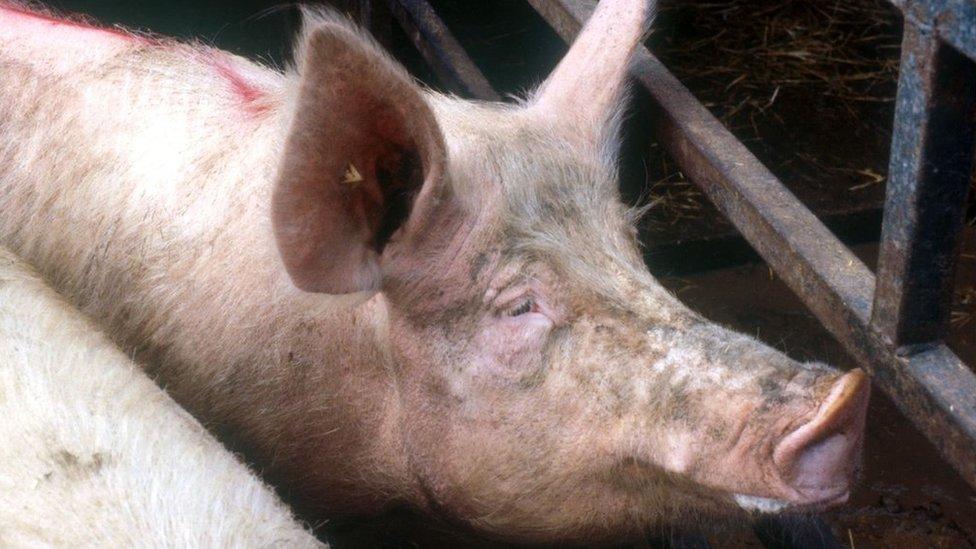Dover: Fears over African swine fever from illegal meat
- Published
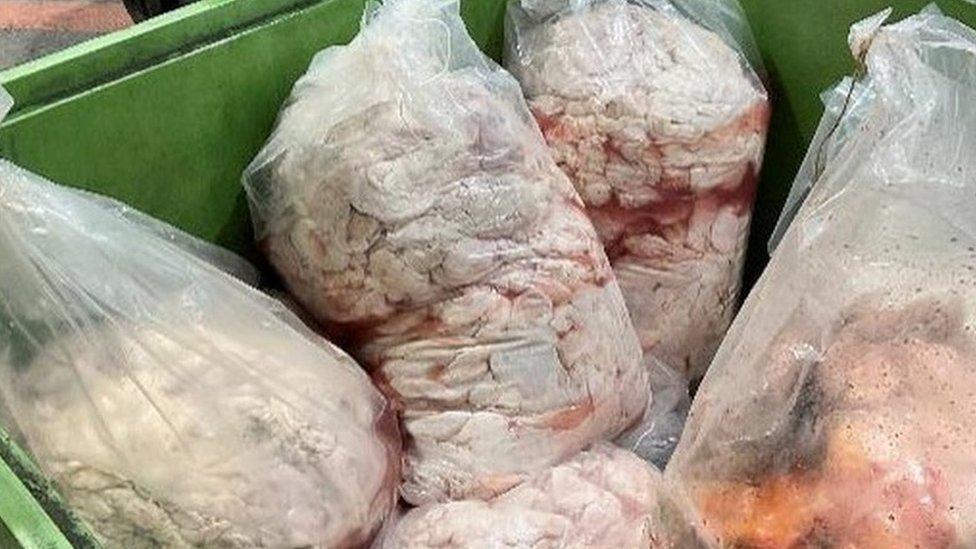
Illegal pork products could cause African swine fever to spread into the UK, Dover officials say
African swine fever could be brought into the UK in illegal pork meat, officials fear.
Port health officials believe they are "barely scratching the surface" of illegal pork meat entering at Dover.
African swine fever is currently spreading through Europe and could have "devastating consequences" if it came to the UK.
Since September 2022, when checks were introduced, 60 tonnes of illegal pork has been seized.
Lucy Manzano, head of port health and public protection at Dover District Council, said: "If it lands here it will result in UK culling programmes, export bans and will absolutely have devastating consequences for our pig farmers, wild pig community and reputation."
African swine fever poses no threat to humans.
Pork arrives in various forms including whole pigs, chops, sausages, heads, feet, tails, and skin, Ms Manzano said.
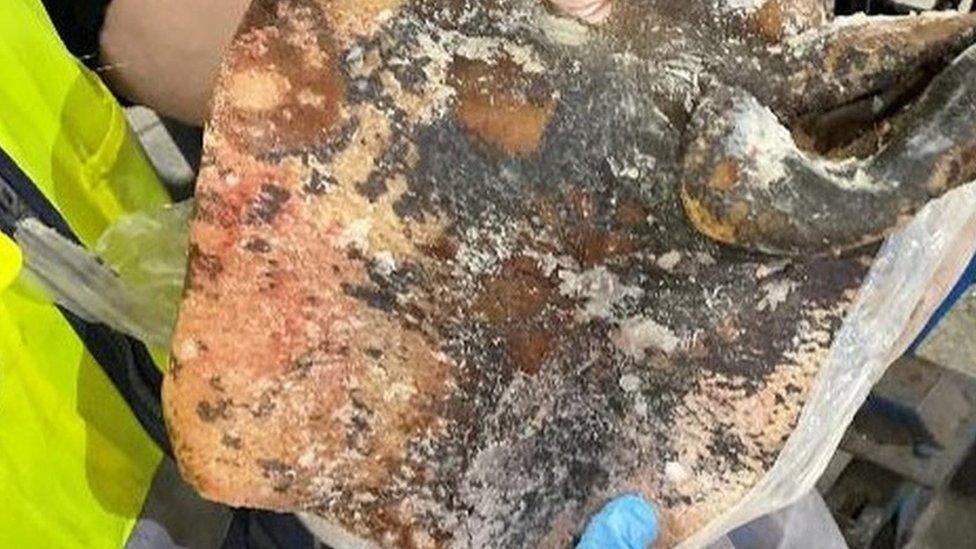
Officials say an outbreak of swine fever would be devastating for the UK's pork producers
Having lobbied the government for more than a year for more staff to carry out checks, Ms Manzano said that on Saturday morning more than a tonne of illegal pork was found in three vehicles.
Considering the number of vehicles each day "this is the tip of the iceberg and these controls need to be bolstered and not reduced," she said.
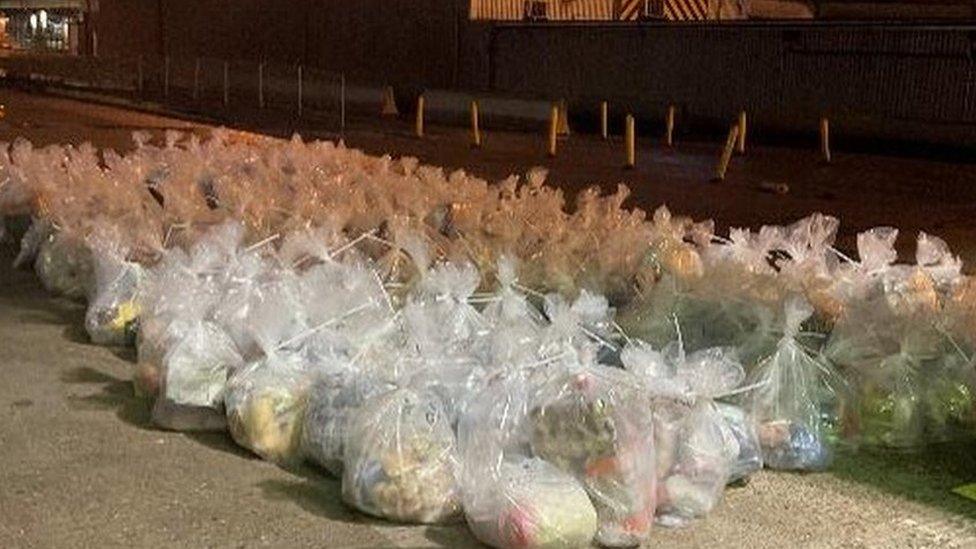
Authorities in Dover say they are seizing illegal meat by the tonne
A Defra spokesperson said preventing an outbreak of African swine fever was a key biosecurity priority.
They added: "We have strict import controls in place to limit possible infected pig meat being brought into England and we continue to work closely with Defra-funded port health authority officers to enforce these effectively."
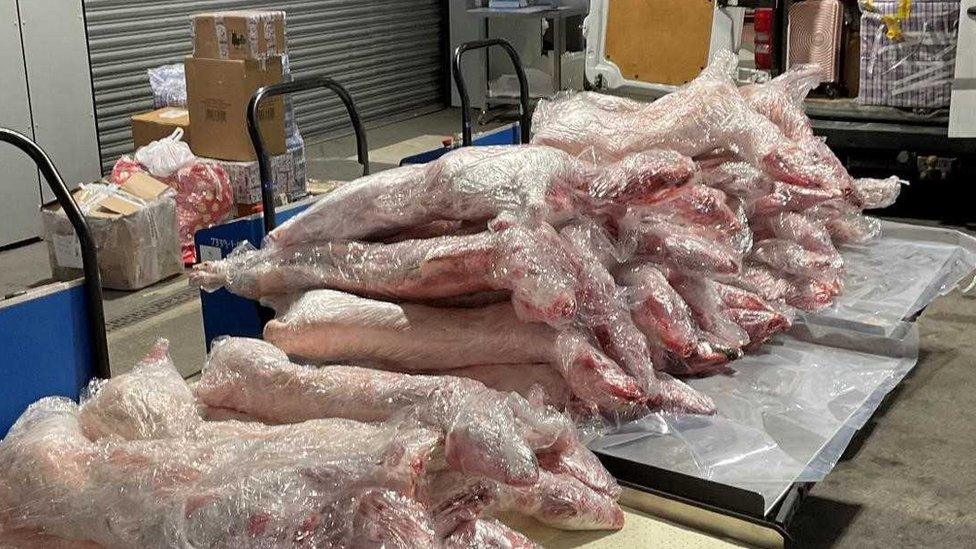
Sheep carcasses are also being seized at the port
The port health chief said government plans to move all checks for Dover 22 miles inland to Sevington could increase risks.
She warned a further reduction of resources at the border would "have an impact on what is landing on our shelves".
A government spokesperson said plans to reduce the number of checks at Border Control Posts were key to its plans to protect the UK's biosecurity, and ensure confidence in the country's exports.
They added that the move to Sevington would "ensure our high biosecurity standards are maintained, whilst also reducing operating costs and burdens on traders".

Follow BBC South East on Facebook, external, on X, external, and on Instagram, external. Send your story ideas to southeasttoday@bbc.co.uk, external.
Related topics
- Published2 December 2022
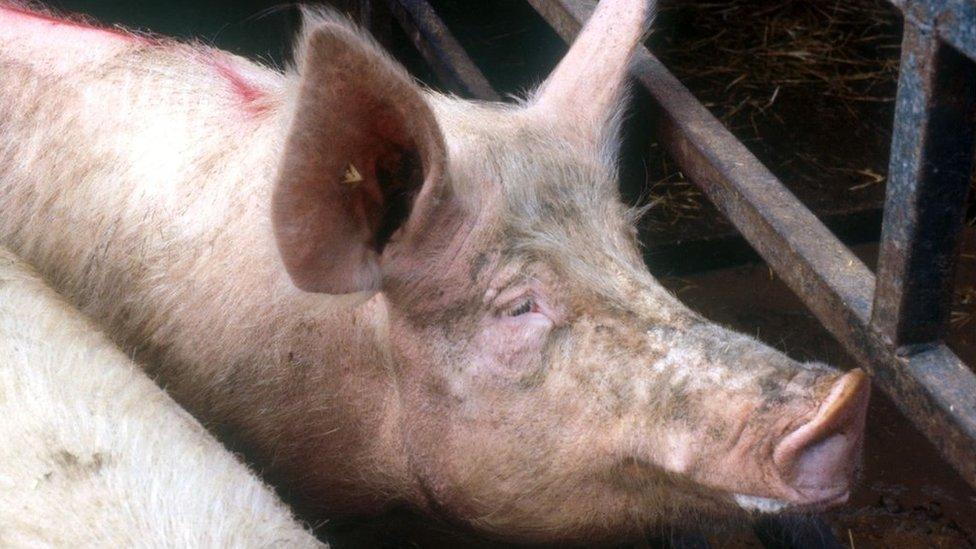
- Published15 November 2022
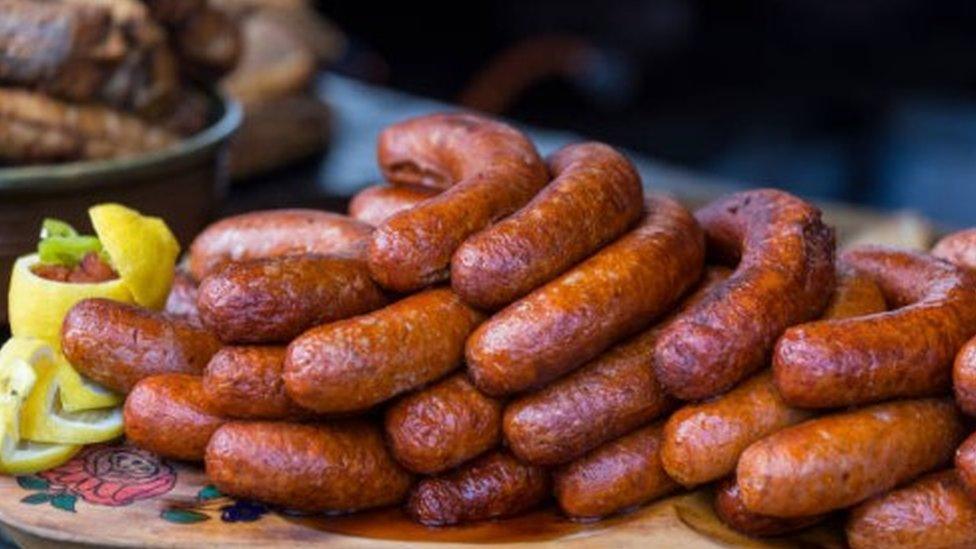
- Published1 September 2022
